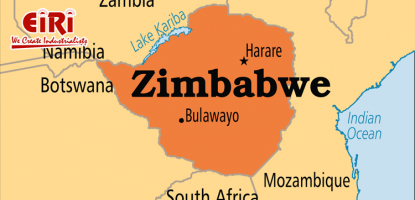Tanzania as a Manufacturing Destination: Opportunities and Challenges

Tanzania is a country located in East Africa, known for its rich culture, diverse wildlife, and growing economy. The country is also known for its manufacturing sector, which is becoming an increasingly attractive destination for businesses looking to start or expand their operations. The manufacturing sector in Tanzania is diverse, and there are a number of opportunities for businesses to explore.
One of the main industries in Tanzania is the food and beverage industry. The country has a well-developed agricultural sector, with a large number of farms and ranches providing a wide range of raw materials such as fruits, vegetables, and meat. This provides a large market for food and beverage manufacturers. Additionally, the country has a number of processing plants and packaging facilities, making it well-suited for the production and processing of food and beverages.
Another important industry in Tanzania is the textile and clothing industry. The country has a long history of textile production, and has established a reputation for producing high-quality products. Additionally, the country has a number of textile mills and manufacturers, providing the infrastructure needed for this type of manufacturing. The textile industry in Tanzania is one of the most developed and diversified in the East African region, and it is a significant contributor to the country's economy.
The manufacturing sector in Tanzania also presents opportunities in the production of chemicals and petrochemicals. The country has a well-developed energy sector, with a large number of natural gas reserves. This provides the raw materials needed to produce a wide range of products such as fuels, lubricants, and petrochemicals. Additionally, the country has a number of refineries and chemical processing plants, providing the infrastructure needed for this type of manufacturing.
Another area of opportunity for manufacturing in Tanzania is in the production of plastic, wood, and steel allied products. The country has a well-developed manufacturing sector providing access to a wide range of raw materials such as plastic, wood, and steel. The country has a number of manufacturers and suppliers, providing the infrastructure needed for this type of manufacturing.
However, doing manufacturing business in Tanzania can also present some challenges. The country has a small domestic market, limited access to financing, and a limited labor force, which can make it difficult to scale up operations. Additionally, the country has a high cost of living, which can make it difficult to attract and retain skilled labor.
Despite these challenges, there are a number of initiatives underway to support the growth of manufacturing in Tanzania. The government of Tanzania has established a number of policies and programs to support the development of the manufacturing sector, including tax incentives, grants, and subsidies. Additionally, the government has invested in infrastructure development, including the construction of industrial parks and special economic zones.
In terms of future growth, the Tanzanian manufacturing industry is expected to continue its expansion in the coming years. The government has set ambitious targets for the sector, and is investing in various initiatives to support its growth. Additionally, the country's rich natural resources, strategic location, and growing consumer market are expected to attract more investment in the manufacturing sector in the future.
In conclusion, Tanzania is becoming a destination of choice for manufacturing businesses looking to invest in a country with a well-developed economy and a large consumer market. With the right strategies and support, manufacturers can successfully establish and grow their operations in Tanzania, while also contributing to the country's economic growth and development. The country already has well-developed industries in foods, beverages, tobacco, textiles, chemicals, plastic, wood, and steel allied products, which can be leveraged for new business opportunities. However, it also presents a number of challenges such as small domestic market, limited access to financing,






